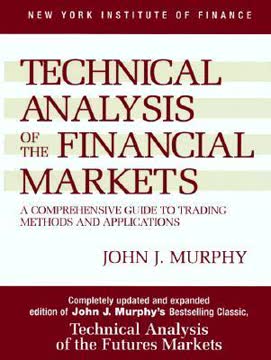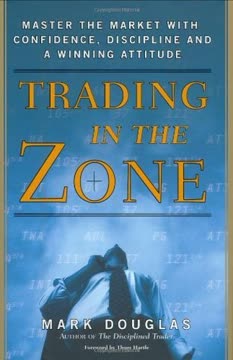つの重要なポイント
1. 市場は常に正しい:適応するか滅びるか
「市場はその行動において決して間違わない。ただ存在するだけだ。」
市場の現実を受け入れる。 市場は参加者全員の集合的な行動を反映する非人格的な力である。あなたの意見や信念、願望などには関心がない。トレーダーとしての役割は、市場の現実に合わせ、自分を調整することであり、対抗することではない。
生き残り、繁栄するために適応する。 成功するトレードには、柔軟な思考と迅速に視点を変える能力が求められる。市場環境が変われば、それに応じて戦略や心構えを変える覚悟が必要だ。市場の矛盾する証拠に固執し続ける者は、失敗を免れない。
あるべき姿ではなく、現実に注目する。 多くのトレーダーは、自分の分析や期待に基づき市場が「こうあるべきだ」と考えがちだ。これが挫折や誤った判断を招く。市場をありのままに受け入れ、現在の現実の中でチャンスを探すことが重要である。
2. 利益と損失の無限の可能性には厳格なリスク管理が必要
「特定のトレードで、価格がどこまで動くかは決して正確には分からない。」
不確実性を受け入れる。 市場は利益と損失の無限の可能性を秘めている。この特性はトレーダーにとって機会であると同時に危険でもある。価格の動きやトレンドの継続期間を確実に予測することは不可能だと認識しよう。
リスク管理を徹底する。 無限のリスクが存在する環境で生き残り、成功するには、規律あるリスク管理が不可欠である。具体的には、
- 損切り注文の設定
- ポジションサイズの制限
- 市場や戦略の分散
- 適切なレバレッジの使用
- 十分な資本の確保
が挙げられる。
リスクとリターンのバランスを取る。 成功するトレードは、リスクと潜在的な報酬の適切なバランスを見極めることにかかっている。計算されたリスクを取る勇気を持ちつつ、資本を致命的な損失から守ることを忘れてはならない。
3. 自分自身と市場を理解するための枠組みを構築する
「成功するために、市場はトレーダーに全く新しい責任感を求める。」
自己認識が不可欠である。 自分の心理状態、信念、感情の傾向を理解することは、成功するトレードに欠かせない。自己分析と継続的な改善のための枠組みを作り上げよう。
市場理解を深める。 同時に、市場の動態、価格の動き、市場を動かす力を深く理解する努力を続ける。特に注目すべき分野は、
- 需給の力学
- 市場構造と注文の流れ
- トレーダー心理と群集行動
- テクニカルおよびファンダメンタル分析
- 市場間の相関関係
である。
自己理解と市場知識を統合する。 最も成功するトレーダーは、自己理解と市場知識を融合させることができる。これにより、心理的に無理なく、市場の現実に即した意思決定が可能になる。
4. 精神的エネルギーを管理し、心理的障壁を克服する方法を学ぶ
「恐怖の制限から自分を解放し、感情の傷を癒し、信念の極性を変えたり完全に解放したりすることは、精神的エネルギーの管理を学ぶことで習得しなければならない技術である。」
精神的障壁を特定する。 トレーダーとして自分を妨げる心理的障害を認識しよう。代表的なものは、
- 損失への恐怖
- 取り残されることへの恐怖(FOMO)
- 完璧主義
- コントロール欲求
- エゴに基づく意思決定
などである。
精神管理の技術を身につける。 精神状態をコントロールし、心理的障壁を乗り越えるための技術を学び、実践しよう。効果的な方法には、
- 瞑想やマインドフルネス
- イメージトレーニングやメンタルリハーサル
- 認知再構成
- ジャーナリングや自己省察
- アファメーションやポジティブセルフトーク
がある。
感情的回復力を養う。 トレードには必ず挫折や損失が伴う。逆境から立ち直り、前向きで成長志向の心構えを維持する力を培おう。
5. 自己規律と感情コントロールを養う
「トレードのような精神的活動でも、水泳のような身体的活動でも、卓越するには専門的なスキルを学ぶ必要がある。」
トレードスキルを磨く。 成功するトレードには、習得し練習すべき特定のスキル群がある。具体的には、
- 市場分析
- リスク管理
- トレードの実行
- 記録管理
- パフォーマンス評価
が含まれる。
感情コントロールを極める。 トレーダーにとって最も重要なスキルの一つは感情の制御である。以下を習得しよう。
- プレッシャー下でも冷静でいること
- 感情ではなく論理に基づいて判断すること
- トレード計画を守ること
- 損失を受け入れ、落胆しないこと
- 連勝時の過信を避けること
継続的に練習する。 どんなスキルも練習によって向上する。規律と感情コントロールも例外ではない。継続的な取り組みと改善への意欲が成功の鍵だ。
6. 価格変動の心理学を理解する
「すべての価格変動は集団心理の作用である。」
集団心理が市場を動かす。 価格は市場参加者全体の行動の集合体によって動く。トレーダー心理を理解することで、市場の動きを予測しやすくなる。
主な心理的要因:
- 恐怖と欲望
- 群集心理
- 確証バイアス
- 過去価格へのアンカリング
- ニュースや出来事への過剰反応
市場センチメントを見極める。 市場全体のムードを把握し、価格変動にどう影響するかを学ぼう。極端な楽観や悲観の兆候は、大きな転換点の前触れであることが多い。
群集行動を予測する。 群衆が異なる市場状況でどのように振る舞うかを理解すれば、集団心理の予測可能なパターンから利益を得ることができる。
7. 成功するトレーダーになるための三段階を極める
「三つの主要な領域がある。機会を認識する能力(知覚)、トレードを実行する能力(実行)、そして口座残高を時間や取引の連続で増やす能力(蓄積)だ。」
第1段階:知覚。 真のトレードチャンスを見極める能力を養う。これには、
- 市場分析スキル
- パターン認識
- 市場の文脈理解
- ノイズを排除し重要情報に集中する力
が含まれる。
第2段階:実行。 効果的にトレードを実行する技術を習得する。重要なポイントは、
- 適切なタイミングでのエントリーとエグジット
- 適正なポジションサイズ
- トレード時の不安管理
- トレード計画の遵守
である。
第3段階:蓄積。 口座残高を継続的に増やす方法を学ぶ。必要な要素は、
- 適切なリスク管理
- ドローダウン時の感情安定
- 利益の賢明な再投資
- 過剰取引の誘惑を避けること
である。
8. システマティックなトレード計画を作成し、徹底的に実行する
「この環境で成功するには、これまで全く馴染みのなかった自己コントロールの方法を学ぶ必要がある。」
包括的な計画を立てる。 以下を明確にした詳細なトレード計画を作成しよう。
- トレード戦略
- リスク管理ルール
- エントリー・エグジットの基準
- ポジションサイズの指針
- パフォーマンス指標
計画を検証し、改善する。 実際の資金を投入する前に、バックテストやペーパートレードで計画を徹底的に検証し、結果に基づいて最適化しよう。
計画を一貫して守る。 トレーダーの真価は、感情が高ぶる状況でも計画を守り続けられるかにかかっている。規律を持ってルールを遵守し、長期的な成功を目指そう。
定期的に見直し、更新する。 市場環境の変化や改善点の発見に応じて、計画とパフォーマンスを定期的に振り返り、柔軟に修正する姿勢が重要だ。
9. 一瞬一瞬の完璧さを学びの機会として受け入れる
「これらの前提に基づいて行動すれば、すべての瞬間が自己の成長状態と改善すべき課題を完璧に示す指標であることに気づき始めるだろう。」
成長志向を持つ。 勝ち負けにかかわらず、すべてのトレード経験を学びと成長の機会と捉えよう。トレーダーとして常に進化し続けるという考え方を受け入れることが大切だ。
成功と失敗から学ぶ。 勝ちトレードも負けトレードも分析し、何が良かったか、どこを改善すべきかを明確にしよう。意思決定や感情のパターンを見つけ出すことが重要である。
自己省察を習慣化する。 定期的に時間を取り、トレードの成果と自己成長を振り返ろう。自問すべき問いは、
- 今週/今月何を学んだか?
- トレーダーとしてどのように成長したか?
- まだ改善すべき点は何か?
- トレード計画を一貫して守れているか?
などである。
継続的な改善を追求する。 常にスキルを磨き、知識を更新し、トレードプロセスを向上させる方法を探求し続けよう。市場は常に変化しており、成功するトレーダーもそれに合わせて進化し続ける。
10. ネガティブな経験を知恵と成長に変える
「恐怖を乗り越え、フラストレーションや不満の連鎖を断ち切り、痛みの記憶の極性を変えることで、問題のあらゆる側面を学び、知恵を得る。」
挫折を学びの機会に変える。 損失やミスを失敗と捉えるのではなく、貴重な学習体験と見なそう。困難な状況から何を学べるか自問しよう。
感情的回復力を高める。 トレードの挫折に伴うネガティブな感情を処理し、解放する技術を身につけよう。具体的には、
- マインドフルネスの実践
- 認知的再構成
- ジャーナリング
- メンターやセラピストとの対話
などが有効である。
ポジティブなトレーダーアイデンティティを築く。 良い経験も悪い経験も活かし、強くしなやかなトレーダーとしての自己像を形成しよう。困難を乗り越えることが成長の不可欠な一部であると認識することが重要だ。
知恵を共有する。 経験を積み、障害を克服したら、他のトレーダーと洞察を共有することも考えよう。教えることは自身の学びを深め、トレードコミュニティへの貢献にもつながる。
最終更新日:
FAQ
What's "The Disciplined Trader" about?
- Core Focus: "The Disciplined Trader" by Mark Douglas is a guide to developing the mental discipline necessary for successful trading.
- Psychological Emphasis: It emphasizes that success in trading is 80% psychological and 20% methodology, focusing on mental discipline over technical skills.
- Adapting Mindset: The book provides insights into adapting one's mindset to the unique psychological challenges of the trading environment.
Why should I read "The Disciplined Trader"?
- Transformative Approach: Reading the book can transform your trading approach by focusing on psychological aspects that often hinder success.
- Overcoming Barriers: It helps identify and overcome psychological barriers such as fear and greed, which can sabotage trading efforts.
- Practical Techniques: The book offers practical techniques for developing self-discipline and emotional control, essential for objective trading decisions.
What are the key takeaways of "The Disciplined Trader"?
- Psychology Over Methodology: Success in trading is largely determined by psychological factors rather than technical skills.
- Self-Discipline and Control: Developing self-discipline and emotional control is crucial for making objective decisions and managing risk.
- Adapting to Market Conditions: Traders must learn to adapt their mindset to the ever-changing market environment, focusing on probabilities.
How do beliefs affect trading according to Mark Douglas?
- Beliefs Define Reality: Beliefs shape our perception of market information, influencing what we perceive as possible.
- Closed-Loop Systems: They create closed-loop systems that reinforce themselves, making it difficult to perceive alternatives.
- Impact on Experience: Traders' experiences in the market reflect their beliefs, which can limit or expand their perception of opportunities.
What is the "new thinking methodology" proposed by Mark Douglas?
- Adapting Mindset: The methodology involves changing one's mindset to align with the realities of the trading environment.
- Focus on Probabilities: Traders are encouraged to focus on probabilities rather than certainties, accepting that losses are natural.
- Developing Mental Flexibility: It emphasizes mental flexibility, allowing traders to shift perspectives and adapt to market conditions.
How does fear impact trading according to "The Disciplined Trader"?
- Limiting Perception: Fear narrows a trader's focus, causing them to miss opportunities and perceive threats where none exist.
- Hesitation and Inaction: It can lead to hesitation and inaction, preventing traders from executing trades even when opportunities are clear.
- Self-Sabotage: Fear often results in self-sabotage, where traders unconsciously act against their best interests.
What techniques does Mark Douglas suggest for overcoming psychological barriers in trading?
- Self-Reflection: Traders are encouraged to reflect on their beliefs and emotions, identifying and addressing limiting factors.
- Developing Discipline: Establishing and adhering to a set of trading rules helps build discipline and reduce emotional decision-making.
- Releasing Fear: Techniques include visualization, affirmations, and focusing on probabilities rather than certainties.
How does Mark Douglas define the trading environment?
- Unlimited Potential: The market offers unlimited potential for profit and loss, making it essential to manage expectations and emotions.
- Perpetual Motion: Prices are in perpetual motion, requiring traders to be adaptable and responsive.
- Psychological Challenges: The trading environment presents unique psychological challenges, necessitating a new way of thinking.
What are the three stages to becoming a successful trader according to Mark Douglas?
- Perceiving Opportunity: Develop the ability to perceive high-probability opportunities objectively, free from emotional biases.
- Executing Trades: Overcome fear and hesitation, trusting oneself to act appropriately under any market condition.
- Accumulating Profits: Allow one's account balance to grow by maintaining discipline and avoiding self-sabotage.
How does Mark Douglas suggest traders develop self-discipline?
- Establishing Rules: Create a set of rules to guide behavior, reducing impulsive and emotional decision-making.
- Consistent Practice: Regular practice and reflection on trading experiences help reinforce discipline and build confidence.
- Accountability: Holding oneself accountable for trading outcomes fosters responsibility and adherence to rules.
What is the role of adaptability in trading success?
- Changing Conditions: Adaptability is crucial for responding effectively to changing market conditions.
- Learning and Growth: It is linked to learning and growth, expanding understanding of market dynamics.
- Balance and Satisfaction: A trader's satisfaction and success are related to their ability to adapt and maintain balance.
What are some of the best quotes from "The Disciplined Trader" and what do they mean?
- "The market is always right": Emphasizes accepting market conditions as they are, rather than imposing expectations.
- "Success in trading is 80 percent psychological and 20 percent one's methodology": Highlights the critical role of psychology in trading success.
- "You create the market that you experience in your own mind": Reflects the idea that traders' perceptions shape their market experience.
レビュー
『The Disciplined Trader』は、トレーディング心理学に関する洞察で高く評価されている書籍である。著者の個人的な経験と、精神的な規律を養うための実践的な助言が読者に好まれている。多くの読者は本書をトレーダー必読の書とみなし、恐怖、欲望、自己制御といったトレーディングにおける心理的要素の探求を称賛している。一方で、文章が繰り返しが多い、あるいは難解だと感じる読者もいるが、その概念はトレーディング以外の分野にも応用可能だと評価されている。特に、トレーディング成功の大きな要因とされる心理的側面に焦点を当てている点が、多くの読者から高く評価されている。
Similar Books















